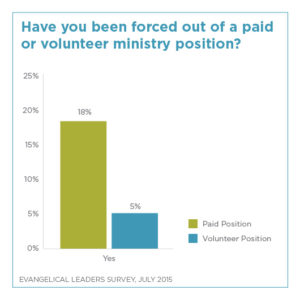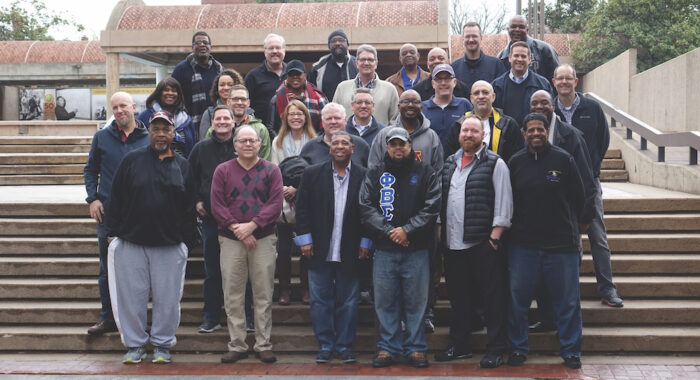

Bill Lenz, senior pastor of Christ the Rock Community Church in Menasha, Wisconsin, has not been pushed out of a position, but has talked with many pastors and leaders who have. “Some have been very legitimate and others seemed to be more based on power plays and conflicts that were not addressed. This is a very real issue and often not talked about,” he said.
Evangelical pastors are often elected and hired by their congregations and directly accountable to them. Many denominational leaders are also elected by popular vote at national conventions.
Anderson said, “Churches often don’t have adequate skill or experience to handle difficult pastoral issues, and few are wise with terminations. There are tendencies to follow the advice of a dominant internal leader, fantasize that the departing pastors will be replaced by someone much better, elevate money over persons, and fail to see the long-term consequences of poorly handled terminations.”
Many changes are related to budgetary issues. Randall Bach, president of Open Bible Churches, was terminated from a ministry position for budgetary reasons. Later it was decided that his services were valuable enough to retool and advance to another position. He notes, “It was a good experience for me — in hindsight.”
At his first ministry job, Joel Hunter, now senior pastor of Northland, A Church Distributed, was fired because the congregation didn’t have money for both him and carpeting. “They chose the carpeting. It was the right decision! I still have fun telling the story,” he said.
Anderson has provided counsel to numerous congregations and pastors on leadership transitions. “The best advice to avoid pastoral terminations is to devote significant prayer, time, budget and process into calling the right pastors in the first place,” he said.
The NAE’s Code of Ethics for Pastors serves as a guide for pastors in their unique place of ministry and sets a standard for ministry evaluation. An accompanying ethics document for congregations and their leadership teams will be released in September.
Anderson’s new book “The Volunteer Church” helps leaders know how to manage and empower those in volunteer ministry positions.
“There is a special blessing for churches that find a better path than termination or that handle the process in ways that are biblical, gracious, careful and clearly Christian,” Anderson said.
The Evangelical Leaders Survey is a monthly poll of the Board of Directors of the National Association of Evangelicals. They include the CEOs of denominations and representatives of a broad array of evangelical organizations including missions, universities, publishers and churches.



 View All Surveys
View All Surveys 




























